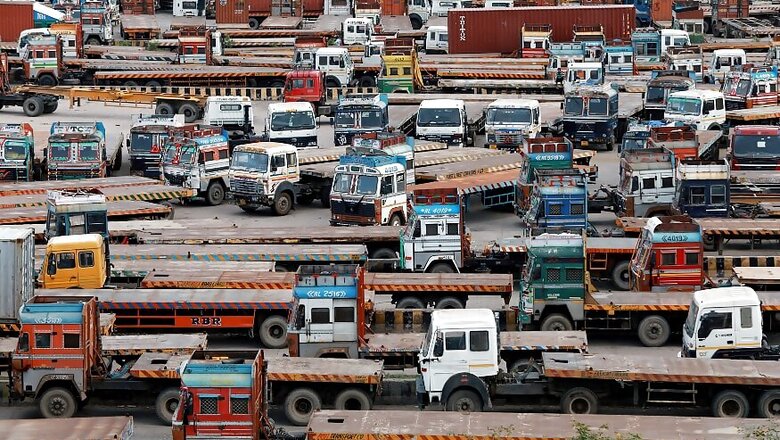Universal Weekly Testing: Lockdown Exit Strategy Could Create ‘Islands of Normalcy’ in Industry Hubs

views
To end an extended lockdown in Britain, a group of public health experts have mooted an exit policy which could also be tweaked to kickstart industrial activities inside manufacturing hubs even in high population countries provided the sanitized zones are sufficiently insulated from external contacts.
In an open letter to the British government last week- this group of academics laid a blue-print to restore normalcy in designated locales by undertaking what they call universal weekly testing. This would entail screening the whole population residing within the prescient of a small town or a city using antigen tests.
And those individuals testing positive be compulsorily quarantined along with their immediate family till the time all members are free of the infection. This would substantially reduce chances of a flare-up even while everyone else in the city goes about with business as usual.
Antigen are substances produced by virus which trigger immune response to the disease. They can be detected earlier than anti-bodies show up in blood samples to provide an early warning of infection in a patient exposed to the pathogen.
On the other hand, an anti-body test generally turns positive nearly a week after one contracts the virus.
“This testing programme should be assessed for feasibility in one or more cities with 200,000– 300,000 people. Such a feasibility study should begin as soon as possible and continue after the current lockdown ends, when the infection rate will be fairly low but rising,” the paper shared with the British government suggests.
The epidemiologist estimate, for a feasibility study on a population of 2 lakh, 26,000 kits per day may be required for a 90 per cent compliance.
An exercise of this magnitude aiming to screen practically the entire population may not be feasible in a country like India. The outcome of the pilot project - if Britain were to conduct one - however might be useful to study and extrapolate the cost and feasibility for creating islands of normalcy till the time a permanent remedy in the form of vaccine or a drug is available for mass usage.
For instance, if there is an industrial town with 2 lakh residents, it can start manufacturing activities through universal weekly testing provided movement of population is closely screened to filter out potential and new carriers.
“Complementary strategies, including contact tracing and telephone applications, will be crucial in the unscreened population and might enable testing to be done less frequently, as prevalence falls,” the paper further suggests.
Life in India has been brought to a grinding halt as the country enters the fifth week of extreme social distancing. From Monday, however, the government has permitted industries in rural areas - especially in districts with low infections - to resume operations. The government will have to take a call on easing further restrictions when the second phase of nationwide lockdown ends on 3rd May.
“We need to develop a surveillance protocol based on a combination of serological testing for tracking individuals with likelihood of being infected, testing them and isolating them to contain the spread of the disease,” Rajiv Kumar, advisor to Niti Aayog, wrote for News18.com earlier this week.
“In the absence of our ability to identify infected households, we are resorting to the hammer approach of locking everybody down. This would impose unacceptable economic costs,” he said.
Industry in India has been supportive of government’s move of a nationwide lockdown to slow down the spread of Covid-19. The roadmap for the opening up is something which everyone is waiting to hear.
Suman Sinha, CMD of ReNew Power, said the biggest challenge for companies will be managing the supply chain as many vendors may still be in locked down zones.
“The government can use this period to test the waters before bringing about a larger level of relaxation in the rules. But easing of restrictions will need to be supplemented by an economic stimulus to ensure that industrial units are able to get back on their feet immediately and consumer demand is also revived in the country,” says Sinha.
Antigen or RNA testing through PCR machines is relatively expensive than antibody tests. The cheaper option in that case could be antibody tests which give quicker results but are less sensitive and may produce negative false test in the first week of infection.
Many countries like Australia and New Zealand which have successfully flattened the curve are working on graded return to normalcy even as WHO advised countries to err on the side of caution before lifting restrictions.



















Comments
0 comment